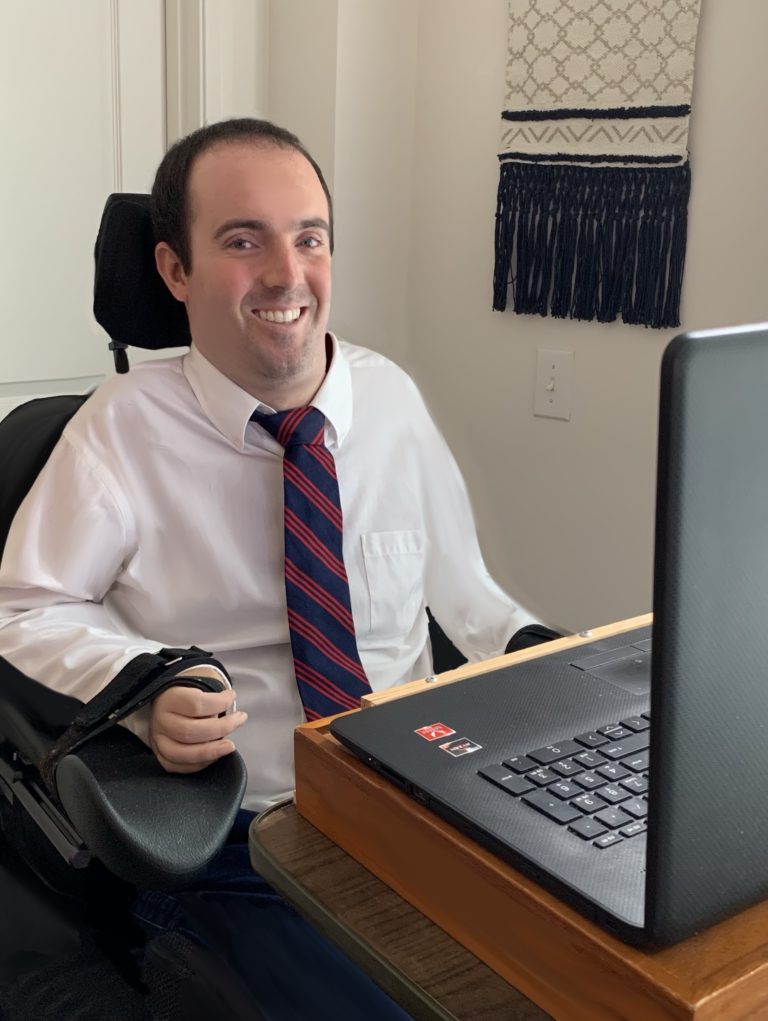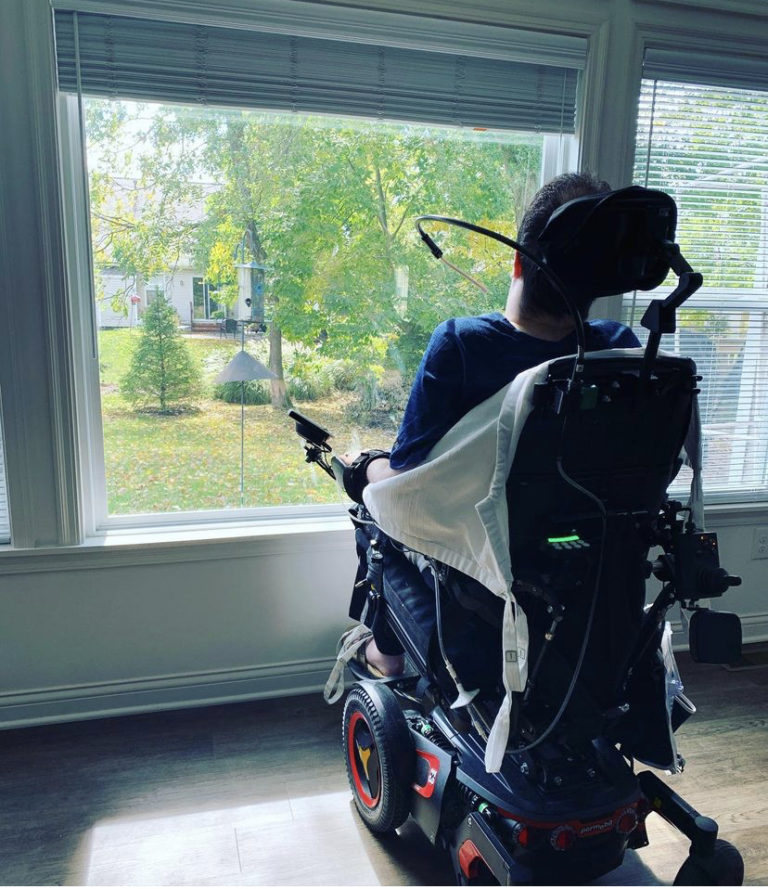
5 things NOT to do when people need you the most
-
By Ryan Atkins
- On Oct 6, 2020
- 27 Comments
- In Life
I looked up with groggy eyes, making out the face of an acquaintance I had attended school with. He was apologizing for not yet having visited me during my first few weeks in the hospital but I could tell he wanted to get the juicy details of my accident. He looked around and waited until others in the room were out of earshot before leaning over and curiously asking, “Dude, were you drunk driving?”
With the ventilator restricting my ability to talk, I tried to muster the strength to shake my head no. I don’t remember one thing about the rest of the visit, let alone the day, aside from the panicked thoughts rolling around in my head. Was this assumed by everyone? Had the doctors been unable to check my blood to confirm sobriety? I stared at the ceiling for hours into the night wondering if this was the prevailing belief of everyone filtering through my room over the past few weeks. With this simple question, I felt dozens of fingers pointing at me saying, “This is your fault.”
I frequently get emails starting with “My friend just got in an accident… How can I help?” We all have people around us who need us. The neighbor who just got the cancer diagnosis. The family member given months to live. The freak accident, leaving us with our hands in the air, feeling helpless, not even knowing where to start.
I’ve learned a lot through Job’s story of suffering, recorded in the Bible. Job suffers immensely, with his family being taken along with his wealth and his health. While his friends are initially by his side, they quickly turn into advice givers and blame shifters, telling him all the reasons why he may be suffering and giving unsolicited advice on how to handle it instead of actually helping. These are great examples of what not to do. But there are plenty more.
Based off what I have experienced personally, as well as the stories of others, here are my top five things not to do. (Seriously…don’t do this stuff.)
Don’t:
• Be advice givers. “You really need to…” “You really should try to…” “If I were you I would…” Just stop.
• Say, “I know exactly how you feel.” One lady came up to me and told me how sorry she was and how she knows exactly what it’s like to be confined to a wheelchair. She broke her leg and couldn’t stand being in one herself for three entire weeks. She wished me a good day and walked away. Thanks for your “empathy.”
• Try to find the root of the problem. If you want to be the theological expert of suffering, don’t externally process with the one who is in the midst of the fire like the guy at the hospital questioning my sobriety did. Similarly, a woman I know lost her husband unexpectedly to a heart attack and someone was quick to proclaim, “Well he was getting pretty old, wasn’t he?”
Sometimes putting your foot in your mouth would be best for everyone.
• Be a voyeur. The excessive observers who check in to get details, get a story, or get the latest interesting update for no reason other than knowing details, having a story, or knowing the latest interesting update is exhausting for the person getting asked and often comes off as very disingenuous. It’s not a coincidence that I haven’t spoken with the inquiring hospital guy in years.
• Try to sound envious: “Wow, your chair is so cool! That must be really fun, just being able to drive with your mouth.” “You’re around so many women. I would love to spend a day in your shoes.” And when many generous people helped out my family in my early recovery stages via the gift of food: “I wish someone brought me all this food. This is a nice gig you’ve got going on here!” Unless you genuinely want to switch spots, don’t act envious.
Back to Job’s friends, they didn’t always suck. Actually, when suffering first onset, they were rock solid friends. I’ve experienced many incredibly helpful gestures from people as well. Which brings me to my list of do’s…
Do:
• Shut up and just be there. Realize that you cannot fix the issue. Instead of giving advice, trying to pry out details, or flirting with the line of blame shifting, just be there as someone to listen and spend time with. Practicing the presence of just being there may be more effective than anything else.
• Treat them the same. Friends that realize I’m the same Ryan from over a decade ago are a whole lot easier to be around than those who pity me or awkwardly stare at the floor. Sometimes I feel like Gary Bertier, the star football player in Remember the Titans. He sat in his hospital bed after a horrific accident and was surrounded by his teammates talking about the upcoming football game. The coach stops the party providing the ultimate buzz kill: “You know what, we don’t need to talk about football right now, Gary. This would be a good time for reflection…” Gary cuts him off, “Coach, I’m hurt, I ain’t dead.”
• Ask what you can pray for.* I think there’s a reason Jesus asked the blind man, “What do you want me to do for you?” There is something powerful about speaking out what we want or need prayer for. But if you ask, actually do it. And follow-up.
• Bring food. For any family dealing with sickness or loss, a meal prepared or purchased by someone else saves time, means a lot, and tastes great (hopefully). Plus, it gives you an opportunity to give the person space by dropping it off with a note. Even if you’re awkward, you can pull this one off.

Thanks to those that have been a part of the “do” list. There have been many of you. Now go do the same for others.
I go much more in-depth on this topic in my new book, One Step Closer. You can download a free chapter here or purchase on Amazon here.





Glad you added the 4 things to do. When I read your title, I sort of had the feeling “5 reasons not to visit someone suffering”. I know I hate silence and often fear saying or doing the wrong thing so I am pushed to stay away. But you’ve given reasons to go.
Praying for your Ryan and specifically for rest for you and Stephanie! I so appreciate your shared wisdom!
Such a helpful post, Ryan. Thanks for the schooling on what NOT to do!!! Prayers for sleep and muscle relaxation – you got it!
You are such a gifted writer with so much wisdom. You are ministering to many people! Thank you for sharing these insights.
Ryan, Praying this for you and Stephanie.
Praying bud. Would be good to see you again soon!
Thank you Ryan for your continued vulnerability and wisdom. Praying for God to bring relaxation to your body and spirit . Lack of sleep is brutal . Praying for peace for your body , mind and spirit as only Christ can provide.
Oh Ryan, I wish I could shake your hand! Here’s another one to add to the list for the future: DON’T say, “…well, there must be sin in your life somewhere for God to allow this to happen to you.” NICE!
Thanks Ryan very helpful insights. I am praying for sleep and muscle relaxation. I miss you. If you ever feel like hanging out with old people let us know :). Love you Bud
Ryan, I will be praying for rest and sleep for you and Stephanie. Thanks for your beautiful words of wisdom!
Your words are inspiring and have guided me in my practice with my own patients. Blessings and thanks
great post.Ne’er knew this, thankyou for letting me know.
You are a talented writer and I really enjoyed reading the do’s and dont’s!! You are so gracious to share your wisdom! Thank you!
Hi Ryan, lovely post again. Very enlightening and informative too. Cover for your book is amazing. Cool layout if your messages too, looks very professional indeed. Well done! Keep strong, try to look for the joy even dark moments. God is the love which is inside us all…the light which guides every soul. Peace. DAVE (AFY)
Appreciate that, David. Thanks for reading!
Thanks for sharing Ryan! Certainly valuable words of wisdom for all.
In the bonds,
Russ ‘79
Glad you found it helpful Russ. Hope you’re doing well. ITB
Thanks for the reminder. My neighbor’s husband just passed and I’ve been spending time with her. This was a timely article.
Great to hear about the timing. I know just being there is more powerful than it may seem. Thanks for sharing Dayna
This was helpful Ryan. Interestingly enough, I listened to a Provers 31 Podcast just yesterday: How to Love Your Friend Through Their Suffering. It compliments what you reflected and “breaks down the different levels of friendship, helps you identify your role based on your level of friendship, and gives practical tips on how to practically — and appropriately — love your friend through suffering.” Worth a listen if your readers want to dig deeper … https://www.proverbs31.org/listen/podcast/full-podcast/2020/12/22/how-to-love-your-friend-through-their-suffering
Jane, thanks for sharing this helpful resource. Sounds like we are both learning about the same concept.
Appreciate the practical advice, Ryan. Keep it up.
Hey Ryan, Great advice! Thank you for sharing. I will store this in my Evernote database for future reference. BTW, so excited to get my signed copy of your book in the mail today. My granddaughter said she got hers as well and is excited to read it. Once she starts I think she will have a hard time putting down. I know I did. It is a great read and wonderfully written. Thank you for sharing your experiences and being so open and vulnerable. It added value to me personally.
Chuck, thanks for sharing this with me. Glad you enjoyed the book and got some value out of it! Hope your granddaughter enjoys
One to add to things to do, learn to read lips if the person you’re visiting is on a vent or trach. I’m one of the world’s worst at lip reading. I feel bad for some of my patients even they are trying to tell me something and I have to have them repeated it several times. Haha, but honestly, just treat the people the same as you did before. They are still that same person. I can’t relate to a patient that’s now confined to a wheelchair or stuck in bed for extended periods, but I can laugh and joke with them or try to talk to them about things I can relate to. Keep up the good work. I can’t wait for more.
Great points Cody. Especially about just laughing and joking around remembering they are still the same person. Appreciate you sharing this
I have viewed that intelligent real estate agents all around you are warming up to FSBO Advertising and marketing. They are seeing that it’s in addition to placing a sign post in the front area. It’s really in relation to building connections with these retailers who one of these days will become consumers. So, when you give your time and effort to assisting these sellers go it alone – the “Law involving Reciprocity” kicks in. Interesting blog post.